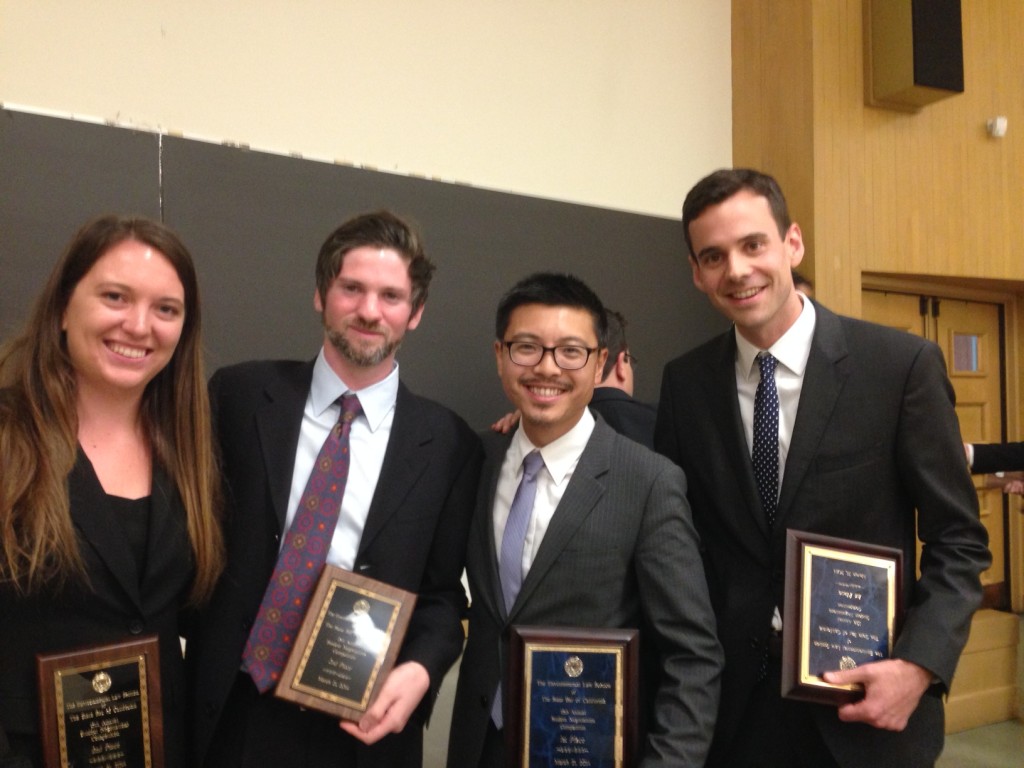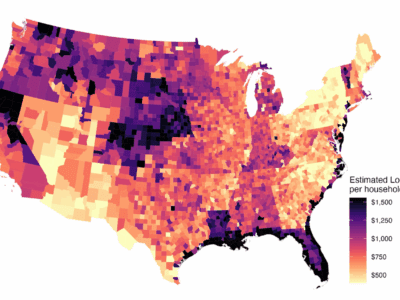Berkeley and UCLA Law Students Take Top Spots at State Environmental Law Negotiations Competition
Students bargain for environmental protection, economic benefits at annual event
Last Friday, the California Bar Association held its 15th Annual Student Environmental Negotiations Competition, at UCLA School of Law. Negotiations competitions stand beside mock trial and moot court programs as means for students to gain experience with the kind of work they’ll be doing after law school. The CalBar competition is open to all California schools, and involves California or federal environmental laws and issues.
In this competition, two-student teams from each participating school are assigned to represent fictional clients in complicated scenarios involving environmental legal issues. A few weeks before the competition, they are given two sets of facts from which to develop their positions and strategies; one is known to both sides, and one is confidential information from their clients. At the competition, the teams compete in two rounds, after which the four top-scoring teams advance. These teams are given a new set of shared and confidential information, and an hour to prepare for a final round. The winners are determined by the total scores from each of the three rounds, based on factors related both to the outcome of the negotiation (i.e., how well the outcome of the negotiations matches the interests and goals of their clients), and the students’ preparation and strategy. The goal of the competition is to provide the students experience with a simulated version of the kinds of issues that they may encounter in future environmental practice.
In this year’s scenario, a company formerly engaged in mining activity is seeking a city council’s approval to develop property into a resort and residential community, complete with a hotel, shopping mall, and golf course. The city is tentatively in favor of the project, but wants several significant concessions; among them, preservation and restoration of wetlands on the property that have been contaminated by the mining operations, and jobs and housing for those currently living in the area. Also at issue is historic contamination by the mining company and other previous occupants of the site, which has left the ground and several lakes contaminated by lead, zinc, and solvents.
Students were asked to negotiate on behalf of the city, development company, and a previous owner of the site, to reach terms for the development and for division of responsibility in cleaning up the contamination. The facts exposed students to land use planning and CERCLA (the Comprehensive Environmental Response, Compensation, and Liability Act, the federal land-contamination law commonly known as the “Superfund Law”). The final round introduced a threat of lawsuit under CEQA (the California Environmental Quality Act), related to species-protection issues.

The Legal Planet schools had a great showing this year. Out of 18 teams from 12 schools, Francis Choi and Andrew Coghlan from Berkeley team took top place, and Ryan Berghoff and Heather Leslie from UCLA came in second. These teams will get prizes of $1000 and $500 respectively, and a great addition to their resumes. The other finalists were Ali Razavi and Brandon Howard from Chapman University, in third place, and Victoria Loomis and William McAdoo from Santa Clara University, in fourth.
We’re very proud to have our students perform so well at this event. As Sean Hecht earlier reported on this blog, UCLA and Berkeley were recently both ranked in the top 10 of environmental law programs in the country. It’s not just our faculty that makes our programs, great, of course, and it’s great to see our students’ efforts rewarded. Training students to be effective representatives on environmental issues is a primary goal of both the UCLA and Berkeley programs.
Congratulations, Heather, Ryan, Andrew, and Francis!







Reader Comments